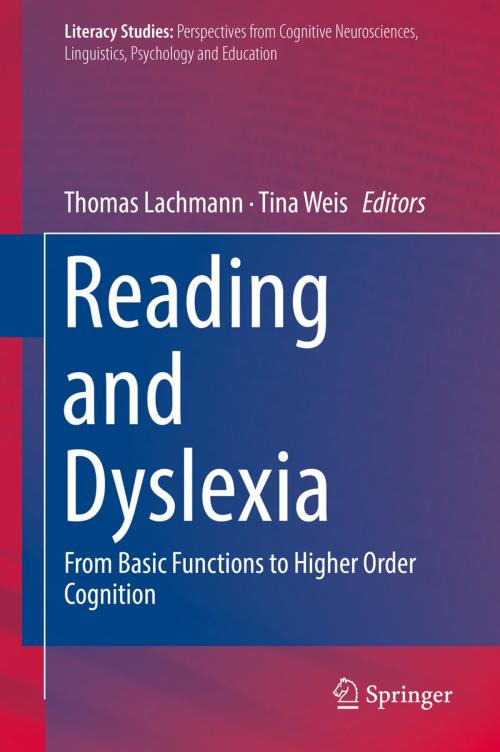Reading and Dyslexia
From Basic Functions to Higher Order Cognition
Nonfiction, Reference & Language, Education & Teaching, Teaching, Language Experience Approach, Language Arts, Linguistics| Author: | ISBN: | 9783319908052 | |
| Publisher: | Springer International Publishing | Publication: | July 28, 2018 |
| Imprint: | Springer | Language: | English |
| Author: | |
| ISBN: | 9783319908052 |
| Publisher: | Springer International Publishing |
| Publication: | July 28, 2018 |
| Imprint: | Springer |
| Language: | English |
In this volume a group of well-known experts of the field cover topics ranging from basic visual and auditory information processing to higher order cognition in reading and dyslexia, from basic research to remediation approaches and from well-established theories to new hypotheses about reading acquisition and causes for its failure.
Reading is one of the most intriguing feats human evolution ever came up with. There is no evolutionary basis for reading as such; reading is secondary to language and the result of a complex skill acquisition at the end of which almost all pre-existing cognitive functions are mobilized. With the right instruction and practice most people learn this skill smoothly. Some, however, have problems, despite same opportunities and general cognitive abilities. This developmental dyslexia results from a neuro developmental disorder leading to deficits in reading relevant information processing. But what deficits are these, and can they be trained?
In this volume a group of well-known experts of the field cover topics ranging from basic visual and auditory information processing to higher order cognition in reading and dyslexia, from basic research to remediation approaches and from well-established theories to new hypotheses about reading acquisition and causes for its failure.
Reading is one of the most intriguing feats human evolution ever came up with. There is no evolutionary basis for reading as such; reading is secondary to language and the result of a complex skill acquisition at the end of which almost all pre-existing cognitive functions are mobilized. With the right instruction and practice most people learn this skill smoothly. Some, however, have problems, despite same opportunities and general cognitive abilities. This developmental dyslexia results from a neuro developmental disorder leading to deficits in reading relevant information processing. But what deficits are these, and can they be trained?















